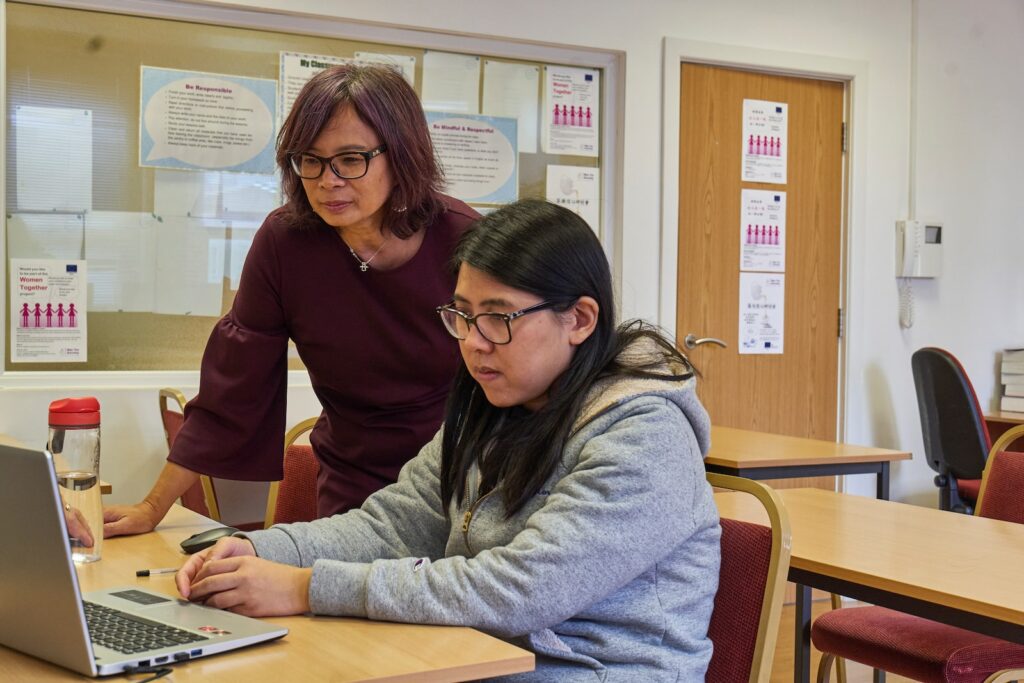Where do educational diagnosticians work, you may ask? When you hear the term ‘educational diagnostician’, what comes to mind? Perhaps images of a teacher with a magnifying glass? Or maybe a tutor analyzing test scores?
While these visuals might hold a sliver of truth, the reality is much richer and deeper. In this guide, we’re embarking on a journey to understand where educational diagnosticians work and how they impact the vast educational landscape.
Contents
- 1 The Role of an Educational Diagnostician
- 2 Schools: The Primary Arena
- 3 Private Practice: Personalized Attention
- 4 Educational Consultancies: Guiding Institutions
- 5 Specialized Clinics: A Deeper Dive
- 6 Research: Shaping the Future
- 7 Government and Policy Making: Wider Impact
- 8 Online Platforms: The Digital Frontier
- 9 Testing Services: Behind the Scenes
- 10 Training Institutes: Passing the Torch
- 11 Conclusion: Where Do Educational Diagnosticians Work?
- 12 FAQs
The Role of an Educational Diagnostician
You know when you take your car to a mechanic because of a strange noise, hoping they can pinpoint the issue? In the world of education, that’s the role of an educational diagnostician. Just as the mechanic delves into the car’s intricate parts, the diagnostician delves into a student’s learning patterns.
They are the unsung heroes who identify and diagnose learning differences, making sure that every student is given the precise tools and strategies to thrive academically. It’s not just about recognizing challenges but also about celebrating strengths and building a roadmap for success.
Schools: The Primary Arena
Imagine a bustling backstage of a theater where all the magic happens – that’s the setting in schools for educational diagnosticians. Predominantly, these professionals find their niche in the vibrant hallways and classrooms of educational institutions.
As crucial behind-the-scenes maestros, they collaborate seamlessly with teachers, administrators, and various educational stakeholders. Their role becomes particularly vital when it comes to crafting Individualized Education Programs (IEPs). Like a tailor fitting a bespoke suit, they ensure that learning experiences are customized perfectly for every student’s unique needs.
Private Practice: Personalized Attention
Ever walked into a boutique café and felt the intimate ambiance, where everything seems tailored just for you? Similarly, in the realm of education, many diagnosticians opt for the allure of private practice.
Just as doctors may have their cozy clinics away from the hustle and bustle of large hospitals, these professionals have spaces dedicated to offering undivided attention. In this serene setting, they can delve deeper into one-on-one assessments, provide focused guidance, and craft strategies meticulously tailored to each student’s journey. It’s like having a personal navigator for the vast seas of learning.
Educational Consultancies: Guiding Institutions
Think of a seasoned sailor advising a crew on navigating tricky waters. In the expansive world of education, from tiny preschools to massive universities, there’s often a need for that guiding hand. This is where the educational diagnostician steps in, shining their light of expertise.
As sought-after consultants, they’re not just diagnosing individual learning needs but are also instrumental in shaping the bigger picture. They offer valuable consultation, train educators, and infuse institutions with deeper insights into effective learning strategies and forward-thinking policies. In essence, they’re the lighthouses directing the ships of learning to safe and effective shores.
Specialized Clinics: A Deeper Dive
Imagine a skilled detective with a magnifying glass, meticulously inspecting and uncovering the most minute details. That’s the role of educational diagnosticians in specialized clinics, particularly those zeroing in on learning disabilities or the spectrum of neurodiversity. In these focused environments, the stakes are often higher, and the intricacies are more complex.
Here, diagnosticians delve deeper into the labyrinth of learning, decoding specific challenges that may be overlooked in broader settings. Armed with their specialized knowledge and tools, they not only identify these unique challenges but also craft actionable, effective solutions tailored to each individual’s needs. It’s precision and care at its finest.
Research: Shaping the Future
Ever considered the explorers charting unknown territories, mapping the stars, or discovering hidden treasures? Well, in the academic landscape, educational diagnosticians are akin to these pioneers. Beyond the classroom walls, they delve into the expansive realm of research. They’re not merely passive observers; they’re trailblazers, actively shaping our collective knowledge.
By investigating the intricacies of learning processes, experimenting with innovative tools, and evaluating the effectiveness of interventions, these professionals are forging the path forward. Their invaluable contributions provide insights that don’t just influence present methodologies but also lay the foundation for the educational practices of tomorrow.
Government and Policy Making: Wider Impact
Imagine a seasoned chef advising a nation on its dietary guidelines. In the realm of education, the educational diagnostician holds a somewhat parallel role. They’re not just confined to classrooms or clinics; their expertise extends to the grand halls of government and policy-making chambers.
Just as architects lay blueprints for towering skyscrapers, diagnosticians help draft the very blueprints of educational systems. By collaborating with government agencies and legislative bodies, they play a pivotal role in shaping educational policies.
Their mission? To ensure that these strategies are not only robust and effective but also inclusive, considering the diverse tapestry of learners. In doing so, they’re not just touching individual lives but influencing entire generations.
Online Platforms: The Digital Frontier
Ever thought about those early explorers setting sail into the unknown, charting new waters? Well, in the vast ocean of the internet, educational diagnosticians are the modern-day navigators. As the world increasingly shifts towards the digital realm, the landscape of education isn’t far behind.
Online learning platforms, from massive open online courses (MOOCs) to bespoke educational apps, are burgeoning at a rapid pace. But, how do these platforms ensure they’re truly serving every learner? Enter the educational diagnostician.
By lending their expertise, they help digital educators craft content that’s not just informative but also tailored to diverse learning needs. It’s like fine-tuning a radio to catch every frequency, ensuring no learner is left unheard or unsupported in the digital age.
Testing Services: Behind the Scenes
Picture the masterminds behind your favorite mystery novels, crafting intricate plots and unexpected twists. Similarly, behind the scenes of those standardized tests and educational assessments, you’ll find the educational diagnosticians weaving their expertise. These professionals are the unsung heroes of the academic testing world.
Many renowned testing services recruit them to ensure their tools aren’t just mere questions on paper but are precise, unbiased, and genuinely reflective of a student’s capabilities. It’s akin to a tailor meticulously measuring and adjusting to create the perfect fit. By ensuring assessments are accurate, fair, and insightful, diagnosticians ensure that every student’s true potential is recognized and nurtured.
Training Institutes: Passing the Torch
Think back to the legendary tales where wise old mentors train young heroes for their epic quests. In the realm of education, the scenario is not too different. Educational diagnosticians, with their vast reservoir of knowledge and experience, often take on roles in training institutes.
It’s not just about classrooms or research papers; it’s about molding the clay into statues, shaping the next wave of educators, counselors, and fellow diagnosticians. Their mission in these settings?
To instill the foundational principles, the latest methodologies, and the essence of empathy in budding professionals. Like a seasoned gardener passing on the secrets of cultivation to an apprentice, they ensure the legacy of effective and compassionate education continues to thrive.
Conclusion: Where Do Educational Diagnosticians Work?
We answered where do educational diagnosticians work, so that you have the knowledge necessary. From the hallways of schools to the high-rise offices of policymakers, educational diagnosticians play a pivotal role. They ensure that every student’s unique learning needs are understood, valued, and addressed. Whether you’re considering this profession or simply curious, understanding where these experts work offers a window into the multifaceted world of education.
FAQs
What qualifications do educational diagnosticians need?
Typically, they need a master’s degree in education or a related field, alongside specialized training in educational diagnostics.
Can they work internationally?
Yes, many diagnosticians work in international schools or consult for global educational platforms, though requirements might vary by country.
Do all schools have an in-house educational diagnostician?
Not always. While many larger institutions or specialized schools might, smaller ones might rely on external consultants or services.
How do they differ from school counselors?
While there’s overlap, diagnosticians focus more on evaluating and diagnosing learning differences, whereas counselors often address broader academic and personal issues.
Are they involved in intervention strategies?
Absolutely! Diagnosticians often play a key role in crafting and recommending tailored interventions for students.






